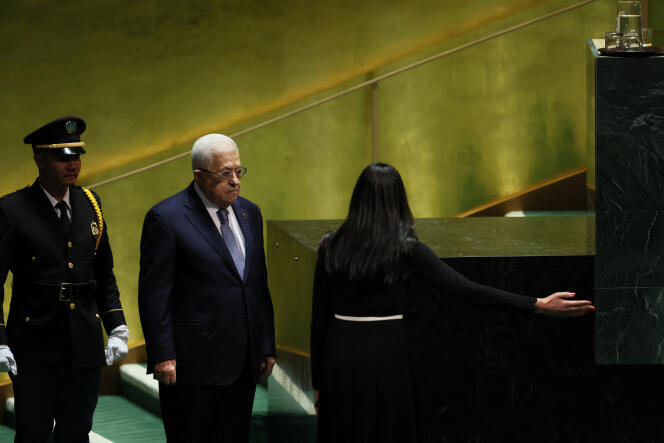


No longer will it be spoken of as "a stab in the back." Rather than wait to see a done deal and then cry foul, the Palestinian Authority (PA) is looking for a place in the ongoing Saudi-American negotiations, with the perspective of a possible normalization of relations between the kingdom and Israel looming.
The Ramallah regime claims to have learned its lesson from the historic debacle that was the Abraham Accords: These accords, in which the United Arab Emirates, Bahrain, Morocco, and more vaguely Sudan, recognized the Jewish state in 2020, went through without a mention of the Palestinian issue and without consulting the PA.
Encouraged by Egypt and Jordan, Palestinian President Mahmoud Abbas visited Riyadh in April for talks with the kingdom's strongman, Crown Prince Mohammed Ben Salman (MBS). This contact continued over the summer, with Palestinian representatives being sent to the Saudi capital at the end of August. "The Emirates went above our heads for their normalization agreement. Today, the Saudis are keeping us informed. We want to be involved, and for our problem to be solved," said Ahmad Al-Deek, political advisor at the Palestinian Ministry of Foreign Affairs.
The PA would have much to lose if Riyadh and Washington were to blame it for any breakdown in the negotiations. Officially, the Saudi line has not changed: The kingdom remains committed to the "Abdallah Plan," named after the former Saudi crown prince – and later sovereign – who forged it in 2002. Adopted by the Arab League, the text makes the normalization of relations with Israel conditional on the creation of a Palestinian state on the 1967 territories, free of settlements, with East Jerusalem as its capital. "Netanyahu and the Americans want to ignore the Palestinian issue. When the Saudis say it's not possible, it's a victory for us," said Al-Deek.
However, in an interview with the American channel Fox News on September 20, the crown prince signaled that he was prepared to scale back these parameters. While MBS stressed that the Palestinian "issue" was important and needed to be "resolved," he mentioned neither "statehood" nor "rights," merely hoping that the negotiations would lead to "a good life for the Palestinians."
For the Palestinians, the last sentence evokes the "economic peace" that Israel has long promised them, in the absence of a state or equal rights. "The PA's involvement in anything resembling normalization, in the hope of benefiting from it, is a huge mistake," said opposition leader Mustafa Barghouti. "The very purpose of normalization is to liquidate the Palestinian issue. The PA must not play this game. At best, all they'll get is a bit of money. Their role is to protect the cause."
You have 52.96% of this article left to read. The rest is for subscribers only.
